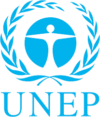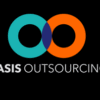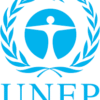Event Management and Communications intern
Responsibilities
- Under the direct supervision of the Marine and Freshwater Branch’s Strategic Communication and Engagement Expert, the intern’s responsibilities will fall within the following activities to support the overall communication, advocacy, and outreach efforts for the Branch:
- Support a wide range of communication and outreach needs and outputs, including drafting briefing notes, speeches, policy briefs, and press releases; and content development, such as video scriptwriting for public service announcements, web stories, website and social media text.
- Support the development of multimedia communications assets across digital and traditional mediums.
- Support the dissemination of content through media and networks.
- Support the implementation of creative campaigns.
- Analyze social media efforts and create reports on Campaign Activations.
- Promote networking and building relationships with local organisations, groups or individuals and support and/or participate in local volunteering initiatives.
- Undertake programme and policy research as directed. 8. Liaise with service providers and creative partners.
- Support the documentation and dissemination of information, reports and study and assessments
- Support in organisation and coordination of events, workshops and conferences
- Support the branch with the organisation and coordination of marine and freshwater related events at the seventh session of the United Nations Environment Assembly
- Other duties to support the work of the Branch as requested.
Qualifications/special skills
- Applicants must, at the time of application, meet one of the following requirements:
- Be enrolled in a graduate school programme (second university degree or equivalent, or higher);
- Be enrolled in the final academic year of a first university degree program (minimum Bachelor’s level or equivalent); or
- Have graduated with a university degree. Applicants must be pursuing qualifications in an area of study that can significantly contribute to the responsibilities outlined and overall work of the Marine and Freshwater Branch, including: Be computer literate in standard software applications (particularly, proficiency using MS Office Suite);
- Possess high-level English writing skills;
- Demonstrate organizational and interpersonal skills;
- Demonstrate interest in issues related to ecosystems management, restoration, biodiversity conservation, climate change or sustainable development;
- Clear ability to successfully interact with individuals of different cultural backgrounds and beliefs, which include willingness to try and understand and be tolerant of differing opinions and views;
China Trust Fund Project Officer (Southern Africa Region)
Duties and responsibilities:
- Conduct a rapid assessment of the status of NBSAP revision and implementation to identify countries’ needs and priorities in implementing the KM-GBF in collaboration with the UNEP Ecosystems Division by:
- Undertaking desk reviews and key informant interviews with national and regional level experts/stakeholders and government officials to understand the global, regional, and national status of biodiversity and implementation of KMGBF and AU-BSAP and other sub-regional strategies and action plans Disseminating the draft assessment to countries to obtain feedback from national officials and stakeholders in collaboration with internal and external partners
- Drafting analysis report on countries’ needs and priorities for capacity development and technical support for implementing the KM-GBF as aligned to the AU-BSAP and sub-regional strategies including action plans to implement them •
- Analysing the capacity of CBD accredited sub-regional Technical and Scientific Support Centres of the CBD to develop a menu of services that they can provide to member states, identifying areas where the TSC need additional capacity, and proposing a resource requirement for the TSC’s to effectively discharge their mandates
- Design and develop project proposals for scaled-up implementation of the KM-GBF, which reflects the priority issues identified for the Africa region for submission to the funding mechanisms by: Organizing webinars and/or virtual meetings in collaboration with sub-regional TSC’s and other relevant partners to brainstorm with regional bodies to ensure the needs and priorities of key stakeholders are reflected in the project design
- Organizing the meetings with regional development banks to increase their support to biodiversity financing
- Organizing the meeting with UN Country Team (UNCT) – with priority to countries developing new CFs – for effective collaboration alignment with local and regional stakeholders in developing the project proposals
Qualifications/special skills
- An Advanced University Degree in biodiversity conservation, environmental science, international development, political science, social science or closely related field is required.
- A first-level university degree in combination with an additional two years of qualifying experience may be accepted in lieu of the advanced university degree.
- A minimum of 10 years’ experience in developing project proposals in biodiversity and environment at the national, regional, and/or global levels is required.
- Experience in project implementation in the context of developing countries is required.
- Work experience related to the Convention on Biological Diversity and the Kunming-Montreal Global Biodiversity Framework (KM-GBF) is an advantage.
- Experience in the United Nations system and/or Intergovernmental Organizations is an advantage.
- Experience in multicultural and/or multidisciplinary teams is an advantage.
China Trust Fund Project Officer(West/Central Africa)
Duties and responsibilities:
- Conduct a rapid assessment of the status of NBSAP revision and implementation to identify countries’ needs and priorities in implementing the KM-GBF in collaboration with the UNEP Ecosystems Division by:
- Undertaking desk reviews and key informant interviews with national and regional level experts/stakeholders and government officials to understand the global, regional, and national status of biodiversity and implementation of KMGBF and AU-BSAP and other sub-regional strategies and action plans Disseminating the draft assessment to countries to obtain feedback from national officials and stakeholders in collaboration with internal and external partners
- Drafting analysis report on countries’ needs and priorities for capacity development and technical support for implementing the KM-GBF as aligned to the AU-BSAP and sub-regional strategies including action plans to implement them •
- Analysing the capacity of CBD accredited sub-regional Technical and Scientific Support Centres of the CBD to develop a menu of services that they can provide to member states, identifying areas where the TSC need additional capacity, and proposing a resource requirement for the TSC’s to effectively discharge their mandates
- Design and develop project proposals for scaled-up implementation of the KM-GBF, which reflects the priority issues identified for the Africa region for submission to the funding mechanisms by: Organizing webinars and/or virtual meetings in collaboration with sub-regional TSC’s and other relevant partners to brainstorm with regional bodies to ensure the needs and priorities of key stakeholders are reflected in the project design
- Organizing the meetings with regional development banks to increase their support to biodiversity financing
- Organizing the meeting with UN Country Team (UNCT) – with priority to countries developing new CFs – for effective collaboration alignment with local and regional stakeholders in developing the project proposals
Qualifications/special skills
- An Advanced University Degree in biodiversity conservation, environmental science, international development, political science, social science or closely related field is required.
- A first-level university degree in combination with an additional two years of qualifying experience may be accepted in lieu of the advanced university degree.
- A minimum of 10 years’ experience in developing project proposals in biodiversity and environment at the national, regional, and/or global levels is required.
- Experience in project implementation in the context of developing countries is required.
- Work experience related to the Convention on Biological Diversity and the Kunming-Montreal Global Biodiversity Framework (KM-GBF) is an advantage.
- Experience in the United Nations system and/or Intergovernmental Organizations is an advantage.
- Experience in multicultural and/or multidisciplinary teams is an advantage.
Project Officer
Duties and Responsibilities
- The incumbent will support the Project Focal Point in carrying out the following duties: Preparing feasibility assessments and supporting pilot projects for reuse/refill solutions in collaboration with women- and youth-led enterprises.
- Providing technical guidance to SMEs in identifying and overcoming barriers to adopting circular practices, particularly integrating reuse and refill into business models.
- Coordinating capacity-building activities and co-developing training materials for plastic-to-brick production targeting youth and women.
- Liaising/Coordinating with government entities (e.g., Ministry of Environment and Forestry), UN agencies (e.g., UNMISS), local communities, NGOs, and private sector partners to build and maintain strategic partnerships.
- Supporting development of south-south cooperation initiatives and knowledge-sharing exchanges on circular economy and plastic pollution solutions. Facilitating regional training workshops for negotiators and technical experts on circular economy and plastics treaty processes.
- Overseeing design and implementation of knowledge exchange programmes on plastic waste management, including learning from Japan and other international partners.
- Preparing awareness-raising materials and community case studies to highlight project outcomes and local innovations.
- Drafting technical reports, narrative updates, and visibility products for UNEP and donor reporting. • Preparing policy briefs and technical documents to inform national and regional policy discussions, including for AMCEN and other high-level events.
- Providing policy and technical assistance to senior decision-makers and negotiators to support political momentum on plastic pollution management. Development of knowledge products capturing lessons learned, success stories, and opportunities for replication and scaling.
- Development of baseline data collection frameworks, mid-term reviews, and monitoring tools to assess project impact.
- Contributing to quarterly and final project reports, including risk assessments and recommendations for corrective action.
- Following up with the UN Country Team and UNRC structure to ensure project alignment with national priorities and facilitate input into Common Country Assessments (CCAs).
- Liaising/coordinating with other sub-programmes in Africa Office and UNEP Divisions and Offices in providing scientific and technical support and advice to the project.
- Organizing and maintaining information and knowledge management database of the project.
- Researching, compiling, evaluating and analyzing information and data on plastic pollution management and sharing such knowledge with stakeholders and partners.
- Monitoring, backstopping and assessing the implementation of the project, including delivery of services for quality control.
- Monitoring reporting by providing prompt feedback on the contents of the report and consolidating progress reports, terminal reports and participating in evaluation for projects. Preparing briefing notes, inputs to speeches and similar material for the project.
- Developing and maintaining close communication and relations with project stakeholders.
- Other duties as required, including administrative tasks related to the assigned substantive activities, as may be assigned by the Project Focal Point.
Qualifications/special skills
- An Advanced University degree, in Environmental Science, Environmental Governance, Project Management, Social Sciences or related field.
- Experience: A minimum of five years of progressively responsible experience in project and/or programme management, with a broad range of sustainable development issues in the African region, working with governments and civil society in environment and natural resources management is required.
- Proven experience in designing and implementing circular economy solutions in developing country contexts, particularly through identifying reuse opportunities and addressing systemic barriers, with a dedicated focus on enabling Small and Medium Enterprises (SMEs) to adopt and scale sustainable practices is required
- Experience in developing public education and awareness materials on plastic pollution and circular economy practices tailored to country-specific contexts related to Africa is desirable Extensive experience in donor engagement, including drafting progress updates and final technical reports that align with UNEP and external donor requirements is required.
- Prior involvement in projects funded by the Government of Japan or implemented under the Japan Supplementary Budget is considered a significant asset.
Submit Your Application
Use the link(s) below to apply on company website.





